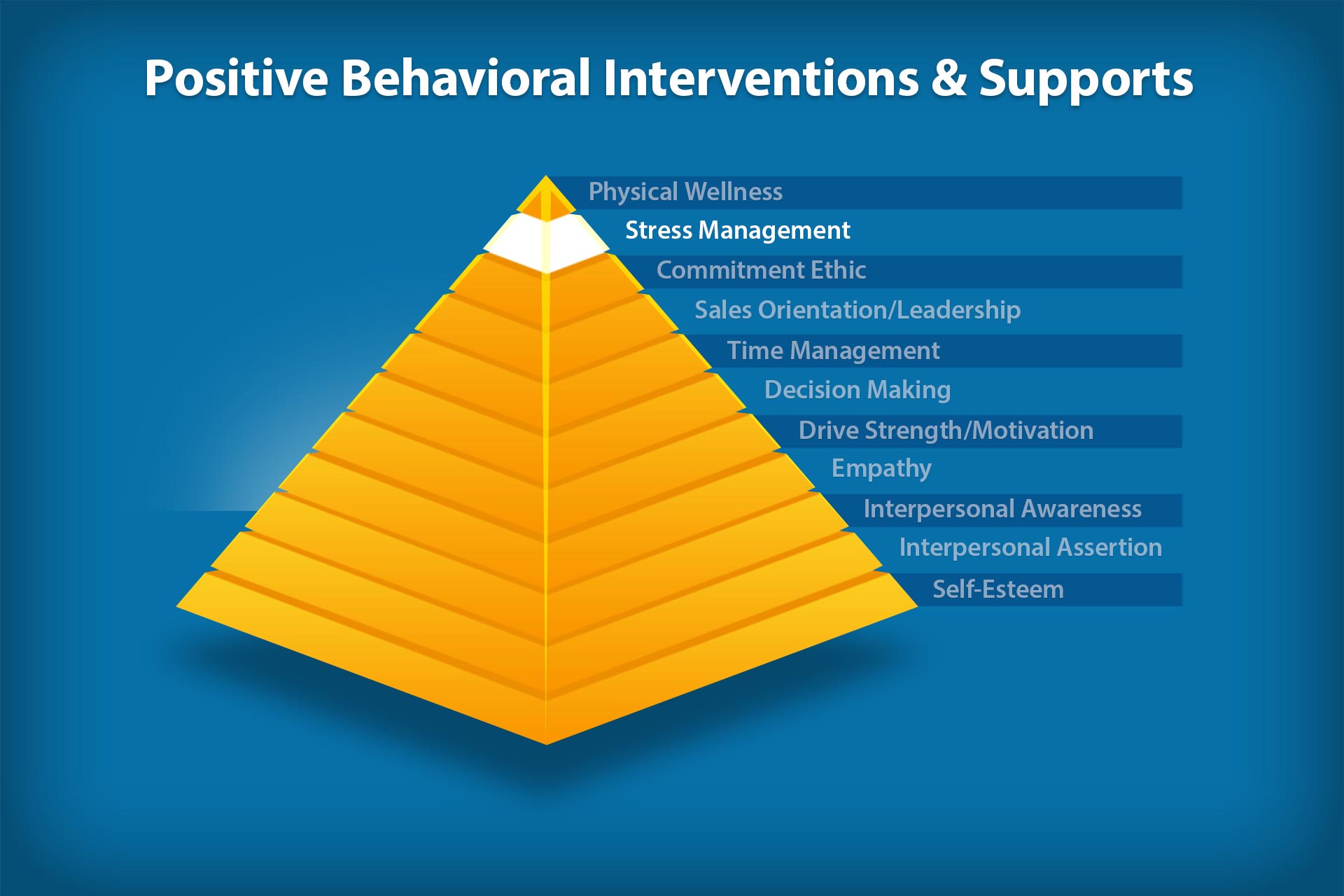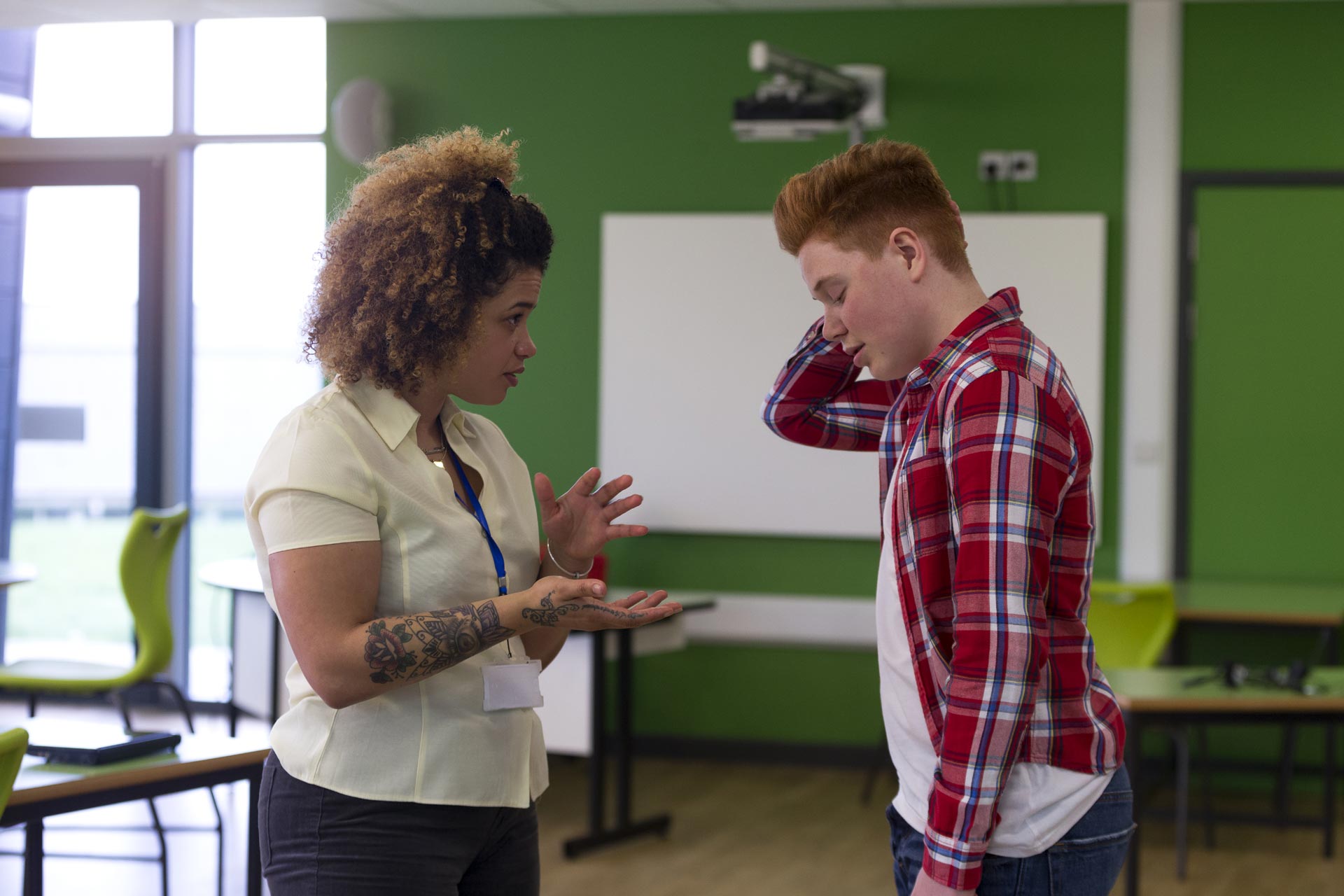
How Stress Works
Stress is an unwanted response that is felt when our mind cannot deal with a challenge. But, where do these unwanted psychological (mind) and physical (body) reactions come from? Over the centuries, our “fight versus flight” reactions developed to help us deal with life. When faced with danger from an enemy, our bodies were designed to send us a jolt of energy that allowed us to stay and fight or run away. Our hearts beat faster and our blood vessels constrict. Only after the danger passed did we notice this burst of energy had left our hearts pounding and our hands sweating. These symptoms usually passed quickly and we were happy to trade the uncomfortable feelings for the bursts of strength we needed to survive.

In today’s society, however, the same reaction that helped our ancestors survive danger can cause us trouble. Our powerful fight versus flight system kicks in at the wrong time. Our minds and bodies all too often react to challenges as if our lives depended on our responses. When we most need to be calm, our stress reactions deliver the wrong results. When this occurs often it results in high levels of stress and difficulties in managing our anger. Fighting to the death or running away are usually not the best ways to react to life’s challenges, are they?
Why Stress Management Matters
Our bodies experience unwanted physical reactions when we face stress. Short term bodily reactions to stress are things like pounding of the heart and fast breathing. Physical reactions to stress can cause health problems including:
- Difficulty remembering
- Difficulty in breathing
- Sleeplessness
- Severe headaches
- Muscle aches
- Sweating
- Dryness of mouth
Left unchecked, stress can also lead to more severe health problems such as high blood pressure, heart conditions and much more. The key is to learn how to manage stress. While we cannot always control many of the things that lead to stress in our lives, we do have control over one thing – our own minds. We can learn to deal correctly with stressors so that our response to a stressful situation is positive. A stressor is an event, situation, or thought that we allow to cause us stress. Stress management skills will help us learn to use stress, not get rid of it.
Stress, PBIS and Academic Performance

Positive Behavioral Interventions and Supports (PBIS) is a term used to describe the proactive approach to establishing the behavioral supports needed for students to achieve social, emotional and academic success. This definition brings together the works of academic instruction and behavioral intervention. The PBIS framework is catching on because it has become evident that you cannot separate academic performance from social/emotional learning and development. You might ask yourself what stress management has to do with PBIS. The answer is: EVERYTHING!
There is a direct correlation between stress, physical wellness, and self-esteem. When stress persists for long periods of time, the desire to take care of our bodies diminishes. Our eating and sleeping habits are impacted by long term stress. When the long term effects of stress begin to impact physical wellness, it also lowers self-esteem. Self-esteem is highly dependent on our ability to manage stress and to take care of our physical well-being. Constantly feeling tired, difficulty paying attention, hyperactivity, and problems with interpersonal relationships, are all signs of a lack of stress management skills which can impact academic performance. Our Personal Skills Map® in our Success Profiler® program is the most valid assessment out there that will enable you to measure all of these attributes accurately and therefore design appropriate interventions and supports.

Just knowing about Stress Management isn’t going to translate into positive outcomes for your program. If you really want to see results, you need to apply this information in a way that will help the individuals you work with set goals, manage their emotions, and develop the workplace readiness skills they need to be successful in today’s information economy.
If you need help connecting PBIS to meaningful outcomes, we’ve developed social/emotional learning standards that you can download for FREE. These standards are research-based and organized by stage of life, so you can easily identify which skills to work on with your clients or students.
If you’d like to download our soft skills standards you can find them here:
